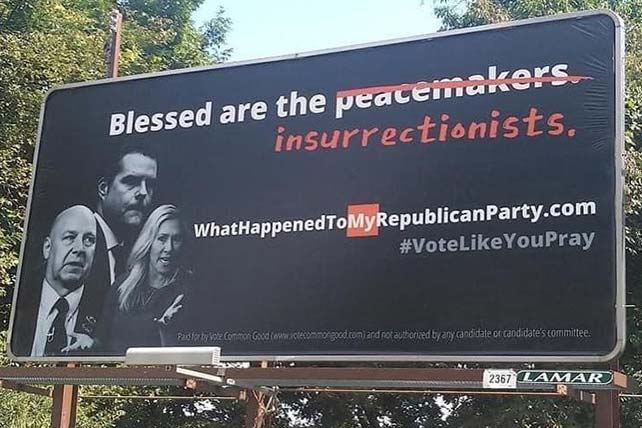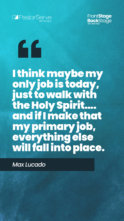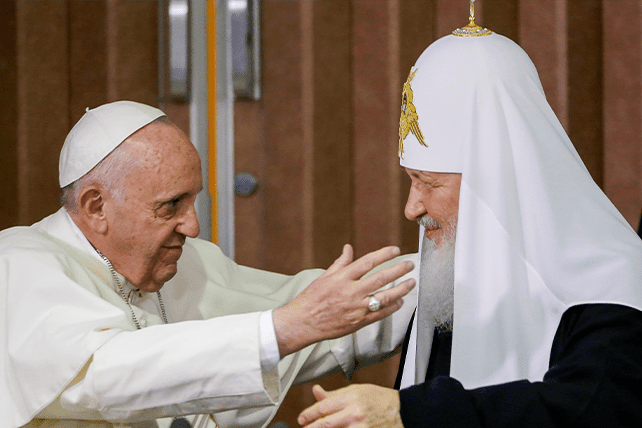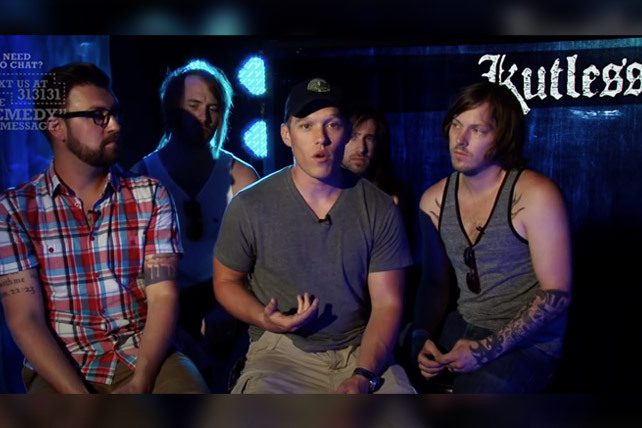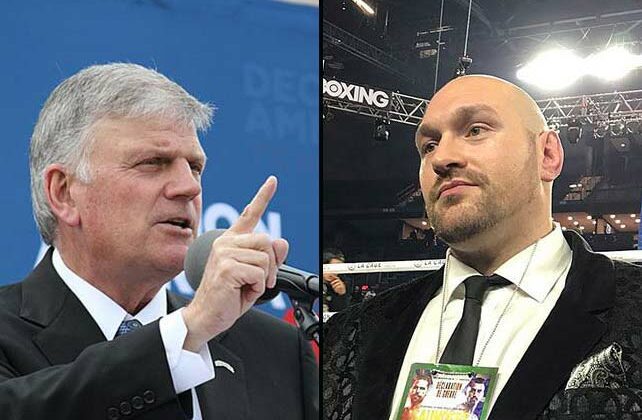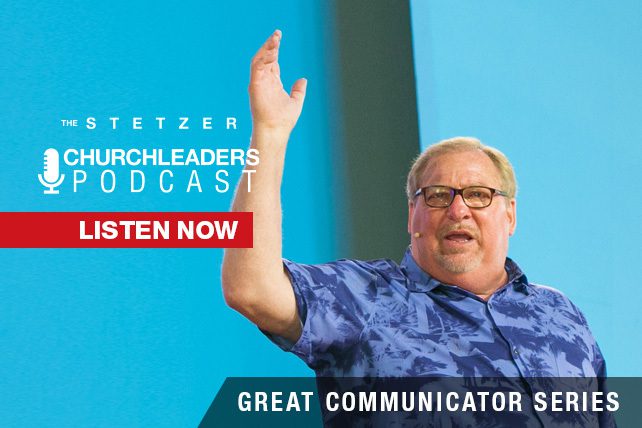With great sorrow, we are reminded once again by the news headlines that the enemy has a special target for spiritual leaders. I myself have reflected anew on how twice I followed a predecessor who disqualified himself from ministry, leaving thousands of Christ followers heartbroken and dismayed.
Why does this happen? And what compels men of such great kingdom influence to throw it all away?
I am reminded of a captivating conversation I had years ago with one of my heroes of the faith and a treasured mentor, Pastor Peter Lord. For 30 years he served as Sr. Pastor of Park Avenue Baptist Church in Titusville and authored many books including the 29:59 Plan, which helps believers spend time with God in authentic prayer. Even into his 80s, Peter remains active in mentoring dozens of leaders in that region.
The Mighty Have Fallen
As we enjoyed these rich moments of fellowship he began to muse about all of his colleagues over the years who have not finished well. Some he spoke of by name, expressing the heartache of watching very good and gifted men self-destruct through moral failure. We also discussed some recent high-profile instances that have brought new devastation to the hearts and spiritual homes of the faithful.
Pastor Lord then asked, “Why do you think this happens?” I felt like a mosquito being asked by an eagle about the skills of flying. I politely posed a few ideas, then quickly deferred to his wisdom on the topic, assured he had given it some deep thought. He responded with one word: “Neglect.”
Our Subtle Neglect
Benjamin Franklin noted, “A little neglect may breed great mischief.” It was George Bernard Shaw who described neglect as “the laziest and commonest of the vices.”
Pastor Lord went on to explain that these fallen leaders were not so foolish as to wake up one day and intentionally throw away their integrity, honor, family and ministry in some abrupt violation of all they knew to be true. Rather, he noted, they simply began to neglect their relationship with the Lord, and over time the erosion robbed them of love, purity, discernment and resolve. Like a snake in the grass, disaster struck.
Satan’s Sinister Strategy
Our spiritual enemy is brilliant, an expert in human behavior, and evil in all of his intentions toward every believer. He is especially so toward spiritual leaders, not because they have greater intrinsic value but because their demise is strategic. I am often reminded that in bowling it is very difficult to get a strike if you do not hit the head pin.
Pastor Lord’s wisdom confirmed a truth we must all understand. Satan’s most relentless temptation in our lives is not the lure of blatant acts of moral stupidity, but the daily willingness to neglect our love for Christ in the smallest of ways. Lucifer knows that the Great Commandment is to love the Lord with all of our heart, soul, mind and strength. Neglect entices us to a partial, perfunctory affection for Christ while maintaining the outward activity of “a Christian life.” Soon, we leave our first love, while still embracing sound doctrine, like the Church of Ephesus in Revelation 2:1-7. Eventually, our spiritual core is compromised; our love wanders from Christ to the empty allure of the world. Calamity creeps and captures us with unexpected ease.
Warning Signs
As I think of this, I see three symptoms of a growing neglect in our lives.
Devotions without devotion – Over the centuries we have created “forms” that we often use to describe our spiritual progress. Too often we can legalistically keep the routine of “daily devotions” but fail to cultivate the reality of renewal in our inner person. We can maintain a good Christian “quiet time” without a quiet heart that adores, loves and abides in Christ Himself.
Serving in place of seeking – I’ve often said that “if the Devil can’t make you bad, he’ll just keep you busy.” A mentor told me years ago that “busyness destroys relationships.” When we find more joy in doing things for Jesus than being with Him, our authenticity is compromised in spite of our admirable activity. Over time, the charade will catch us.
Duty without delight – Biblical standards, tradition, the needs of others and the expectations of powerful voices in our lives can keep us on task with our duties of religious service. However, the true life-giving sustenance for a fruitful life is the delight of abiding in Christ, drawing our satisfaction and supply from a loving experience of His life in us. Trudging ahead with religious duty that does not spring from daily delight in Christ will lead us to empty pretense and grave spiritual vulnerability.
Remember, Repent, Return
Jesus’ words to an orthodox but neglectful, love-diminished church were clear: “Remember therefore from where you have fallen; repent and do the first works, or else I will come to you quickly and remove your lampstand from its place—unless you repent.” God has given us the capacity to remember with deep affection the days of earnest and expressed love for Christ. With this longing in our hearts we need to make a turn of attitude and action. Neglect that leads to an empty, loveless life is a sin that demands serious and sincere repentance. Through grace, and by the power of the Spirit, we can return to the rhythms and routines of wholehearted pursuit of Christ.
The lampstand of our spiritual influence will eventually be taken away, either by the absence of God’s blessing or the consequences of an empty and wandering heart. Neglect, the “laziest and commonest of vices,” plays into our archenemy’s schemes to slowly and surely diminish our spiritual authenticity and truncate a strong finish in the marathon of Christian living. Let us trust the Lord today for a daily empowerment of grace to counter our negligence and restore the simplicity and purity of a loving and pure devotion to Jesus.
This article originally appeared here.




